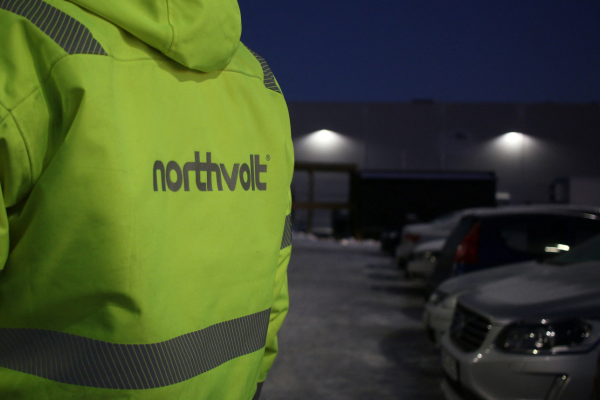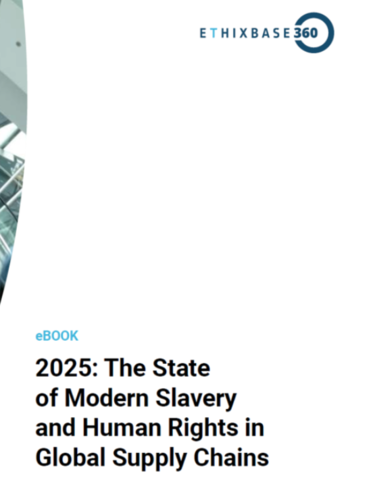“Ethics plus” – How to lead organisations to success
Sponsored by CIPS
Malcolm Harrison, Group CEO, CIPS Group CEO at CIPS Malcolm Harrison on how strong leaders should have “ethics plus” at their core, and how they can lead their organisation to a position of strength and longevity.
You could be forgiven for thinking that, with recent political and economic upheavals, environmental disasters and the rapid spread of Covid-19 threatening our health and supply chains, we are operating in an age of extremes.
In the World Economic Forum 2020 report on risk, an important source of information for risk mitigation for leaders, the top three risks listed as “likely” were extreme weather, climate action failure and natural disasters. However, the impacts on particular businesses are more difficult to predict.
Strong leaders in procurement and supply management can drive significant change in their organisations, but they are working in a landscape that is increasingly difficult to understand and to forecast. The speed of change in business has introduced more volatility, turning old ways of working upside down.
When I started in procurement, there were only two goals for a leader in procurement and supply management – continuity of supply and delivering value across the supply chain. Now it is about managing risks, corporate reputation, being the best customer and being open to investment opportunities. Value will always include business growth, increased innovation, digitalisation, sustainable supply chains, the development of new supply markets and increased social value – all challenging the skills, experience and abilities of professionals to their limit. Uncertainty affects a leader’s ability to forecast potential outcomes – a core skill for any CEO leading their organisation to a position of strength and longevity.
Though a level of uncertainty in the business world has always existed, there are always new situations to consider and react to, so no leader can remain complacent for long. Complexity is another challenge. Whether it is highly technical IT solutions or developing new relationships with stakeholders or suppliers, leaders need to unravel and make sense of complex projects while juggling multiple priorities.
Adding a cloud of ambiguity around trade deals means many leaders are struggling to make the right decisions and create the most effective plans for their business. As these pressures heighten, it may be tempting to cut corners. But, as any credible leader knows, keeping integrity and transparency at the core of any decision-making is the strongest way forward. In fact, responsible procurement is a reputational and economic imperative. I call this “ethics plus”, where day-to-day business decisions are made, almost without thinking, with a focus on doing the right thing.
This would include issues around modern slavery, environmental sustainability such as climate change, labour conditions among suppliers, or socially inclusive opportunities. We always challenge our procurement leaders to keep improving by becoming chartered, to demonstrate they have the latest insight and the most up-to-date skills, and implement the most ethical practices. That strict adherence to ethics also includes paying suppliers on time.
The Small Business Commissioner recently published a report on Bombardier Transport UK, highlighting the company’s unacceptable practices such as paying SME invoices up to 223 days late. The commission is getting tougher on larger corporates dragging their feet on responsible payment, which is a welcome development. Poor payment practices have a knock-on effect and impact everyone. But good procurement and supply chain practice should not need a gun to the head.
Compare and contrast this to Rio Tinto’s commitment to pay its small suppliers within 20 days and it proves that, with focus and commitment, ethical treatment of suppliers can be achieved. Lastly, one of the trends in business I have seen recently is all about “superforecasters”. These are individuals who excel in the art and science of forecasting future business challenges. These superforecasters are not necessarily experts in their field, but they have the ability to predict the disrupting events that blindside businesses.
For me, good leaders have the same skills. Like a superforecaster, strong leaders gather as much insight as possible about their business, customers, global risk and opportunity. They get into the habit of keeping these worst-case scenarios uppermost in their minds and prepare for them. They develop and support their teams to increase capabilities. With some intellectual humility they are brave enough to change course when the need arrives.
We may be suffering from the effects of uncertainty at the moment, but like any terrain, formidable leaders can conquer these challenges with the right knowledge, the right equipment and the right skills. Armed with an inquisitive and decisive attitude, and influential and persuasive skills, a strong procurement and supply management leader can steer not only their teams but their organisation to success.

Business Reporter Team
Most Viewed
Winston House, 3rd Floor, Units 306-309, 2-4 Dollis Park, London, N3 1HF
23-29 Hendon Lane, London, N3 1RT
020 8349 4363
© 2024, Lyonsdown Limited. Business Reporter® is a registered trademark of Lyonsdown Ltd. VAT registration number: 830519543





